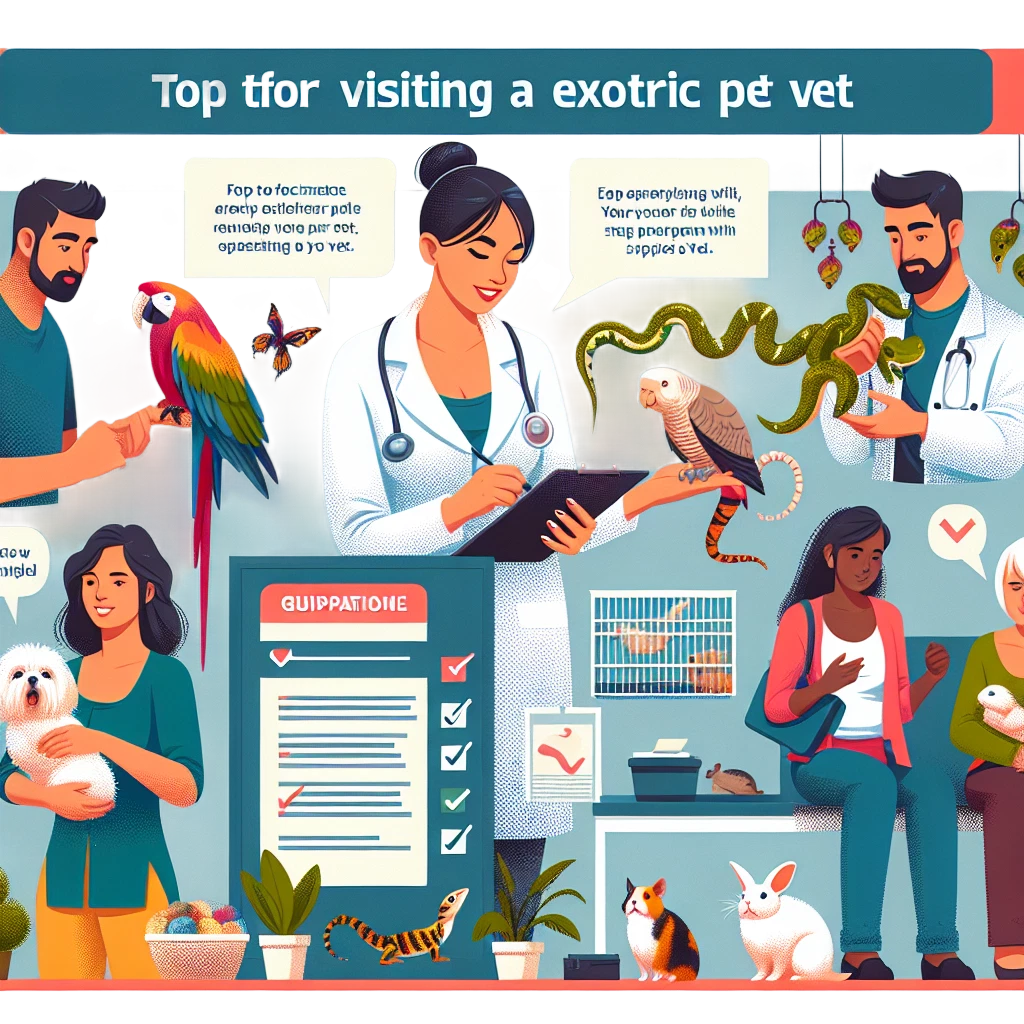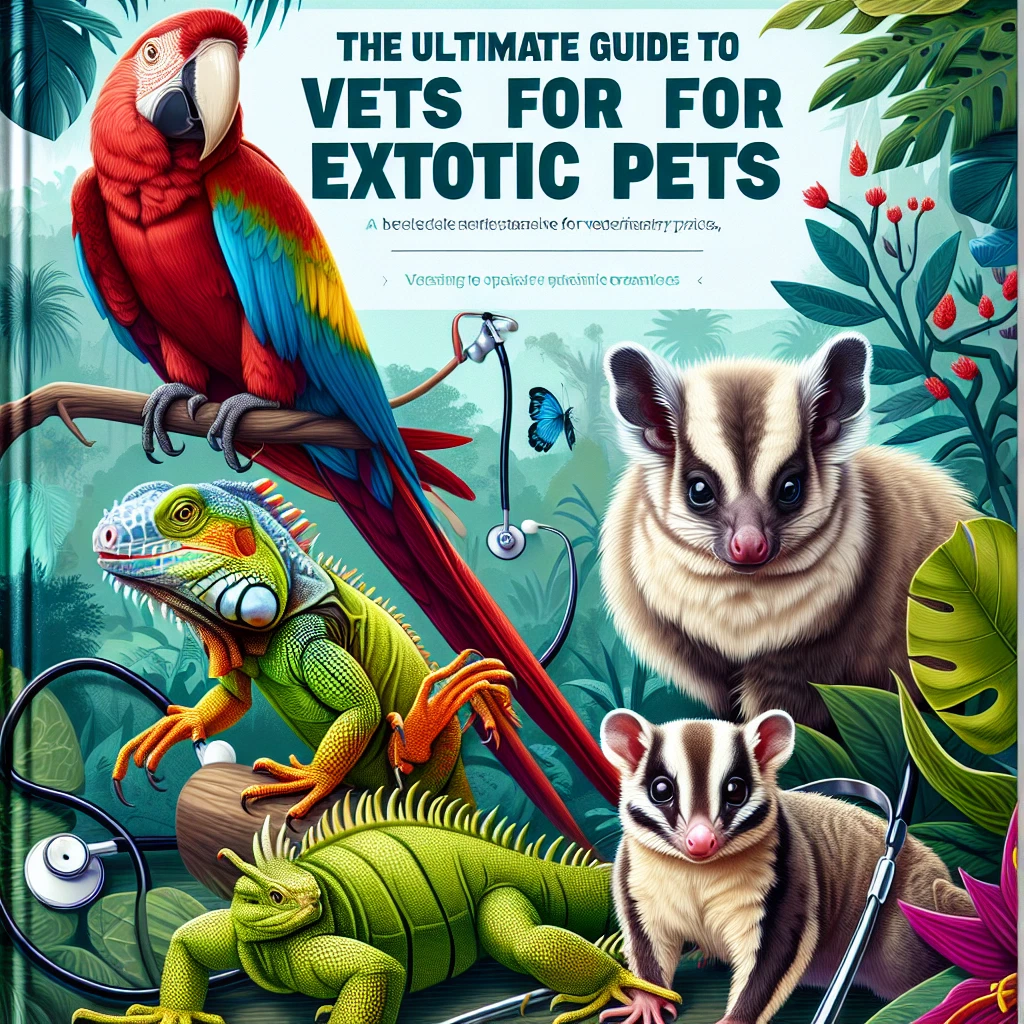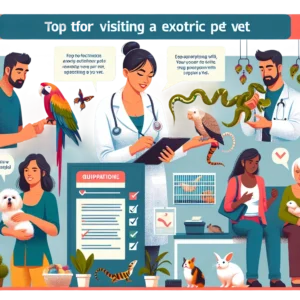Discover Your Perfect Exotic Pet and Learn How to Care for It
Having an exotic pet in your house is truly a crazy adventure, wild experience, that brings the wonder of wildlife into reality. Some of these animals include colorful reptiles and engaging birds to have unusual different relationships with. Nonetheless, it is important that one takes extra care while selecting and taking care of them. For this reason, we have prepared a step-by-step guide for you on how to select and care for an exotic pet based on your lifestyle.
Exotic Pets: All You Need To Know
Exotic pets refer to the other types of animals not commonly kept as pets by human. They could be anything from reptiles and amphibians to birds, small mammals, or even invertebrates like insects. These are special needs companions who will require specialized environments and handling techniques to thrive well. Therefore there are some specific requirements one must know before proceeding with adopting any.
Consider Your Lifestyle
When choosing an exotic pet think about whether it fits in with your day-to-day routine at home or work as well as your time commitments. Others may only need socialization little daily e.g., snakes or tarantulas while a few such as parrots or ferrets crave regular attention often requiring some socializing.
These things consist of:
· Daily Schedule: Is there ample time for feeding schedules, cleaning cages or terrariums as well as bonding activities?
· Living Space: Do you want a terrarium? An aquarium? Or an aviary?
· Budget: What is the initial setup cost plus maintenance charges?
Research Possible Pets
After evaluating available resources as per lifestyle; go ahead & carry out some investigations about different rare animals around the world? Such inquiries should touch on their natural foods; typical lifespan What type of companions do they usually have? This information can greatly influence your decision; moreover it can be obtained by contacting those communities that rearing these types of uncommon household animals or simply joining online conversation where users share their own stories.
Consult the Local Pet Stores
Local pet stores are the best place to start when gathering information on exotic pets. One can visit any of those selling such pets and speak to the attendants there. They will be able to guide you on how to keep them right, where there are reliable breeders available and what alternatives may be given.
How to Choose an Exotic Pet
Choosing the right exotic pet is not just a matter of love but finding one that suits your life style. Here are some popular types of exotic pets and what you should know about them.
Reptiles
Slithering reptiles like snakes, lizards or turtles require minimal care compared to other animals. It’s very important for one to have a proper vivarium so as they can maintain their preferred temperature and humidity level.
Birds
Colorful birds’ species like parrots or finches with beautiful feathers & complex characters. For growing mentally as well as physically strong birds need big cages with continuous socializing.
Small Mammals
This however means sugar gliders, ferrets or hedgehogs which are small mammals that often display interactive behavior about themselves. They need bigger places for living asleep at night (or playing part in nocturnal activities), eating a mentally enriched diet and getting enough nutrients into their bodies.
Frogs, salamanders and newts are interesting amphibians which do well in properly maintained aquariums/terrariums where specific water parameters & frequent tank cleansing rituals can be done to them and besides this.
Invertebrates
Unique invertebrate animals such as tarantulas or scorpions make great low-maintenance pets when they don’t have spines at all time unless feeding on live prey; but at the same time ensuring the predators don’t get them means they have to be kept in completely enclosed spaces with suitable substrate!
Creating The Best Environment for Your Unique Pet through Habitat
This is important in terms of keeping your exotic pets healthy and happy. It is however crucial to ensure that each species gets the right conditions:
Enclosure
The type of enclosure chosen should be determined by the size of your pet as well as its energy level. Therefore it should be well ventilated, secure and should leave enough space for enrichment.
Temperature and Humidity
These conditions may remain constant with devices used to monitor them. For example, heaters, lamps or humidifiers are some of the devices used to regulate temperatures as well as humidity levels in an enclosure.
Substrate and Decorations
Select decorations that mimic your pet’s natural surroundings. These include basking areas such as branches, hides, and climbing structures among others.
Feeding Your Exotic Pet
Feeding an exotic animal a proper balanced food amounts to good health. This means that diet will depend on nutritional requirements established from research such as;
Reptiles
Mix live prey (insects) with fruits or vegetables depending on the type of reptile being fed. In case all nutrients are not met, supplements can be used.
Birds
Seeds, pellets and fruits or vegetables form the best diet for birds. Avoid toxic foods such as chocolate avocado or caffeine.
Small Mammals
These animals require high-quality pellets as well as fresh fruits and vegetables; nuts and insects may also be fed to them when necessary.
Amphibians
It’s normal for amphibians to feed on live prey like insects plus some small invertebrates. Nonetheless, it is important that you make sure that the food is of proper size for your pet.
Invertebrates
While most invertebrates consume live prey, like crickets even mealworms with some requiring special supplements too.
Providing Enrichment and Socialization
Enrichment in addition to socialization two critical aspects that keep any exotic animal busy either mentally or physically thus preventing boredom respectively. These could entail toys, climbing structures or just yourself alongside other pets at home.
Reptiles
Reptiles should have something to climb on, a hiding place or should be taken outside once in awhile.
Birds
Remember games, toys and social interaction are important for these animals. Therefore change their toys regularly so they do not get bored easily playing with a variety of different types each time.
Small Mammals
Make sure you have tunnels wheels and interactive toys ready for them. They will still need your attention whenever you are around them playing with them each day.
Amphibians
Aquatic setups with natural features such as raising plants, water bodies and hiding places would work best for amphibians kept within enclosures.
Invertebrates
Even though there doesn’t seem much interaction among invertebrates but they benefit so much from beautifully decorated enclosures since it gives them security too.
Regular Check-Ups for the Health
To prevent problems from occurring early on, exotic pets should receive regular health check-ups. Choose a veterinarian who has experience treating exotic animals and plan routine visits. The following are some of them you should be aware of:
Symptoms of a Healthy Pet
You need to keep your eyes open for clear eyes without any discharge so that this is what you will see in your pet when it is okay. They are healthy if their skin or feathers are smooth. Regular eating habits and patterns of activity.
Common Problems
There is risk awareness concerning malnutrition, respiratory infections and parasites that may prevail among them. These problems have to be detected at the beginning to initiate immediate treatment.
Preventive Measures
Apply preventive measures such as vaccinations and parasite control as appropriate whenever needed to ensure the good health of your pet animal only. Just follow your veterinarian’s advice on how well to take good care of it.
Legal Issues
Check legal provisions within your area before purchasing an exotic pet as a pet animal. Some breeds will thus require one to obtain permits or even they might be prohibited hence comply with all state, national as well as other local laws.
Licensing and Permits
Are there any licenses I am supposed to have for my pet based on its species, breeding location? Hence these licenses might also depend with where you live or which species it belongs into.
Ethical Factors
In addition, moral implications regarding keeping such pets could be significant too. Ensure that our pets come from sources that ethically exploit wildlife.
Finding a Good Breeder Or Rescue
To acquire healthy and morally sourced pets one must locate an established breeder or rescue organization respectively. Investigate around your locality especially through those groups whose focus is mainly on exotics right now.
Examples Of Questions To Ask Breeders While Finding A New Dog
When contacting breeders ask about things like guarantees on health conditions as well as what breeding practices they have used; to obtain that particular dog, many dishonest breeders may refuse to give you any information because it is not what you want. So if a breeder is honest and knowledgeable he will tell you this.
Adopting from Rescues
That’s how experience with adopting from rescue can be highly fulfilling. This guarantees that rescues provide appropriate care and socialization for their animals.
Stopping the Illegal Trade
It is better not to purchase pets through illegal means or those who are involved in this unethical trade. It protects wildlife as well as ensures healthier pets.
Building a Bond with Your Exotic Pet
Building up trust between an exotic pet takes time and patience. You must know its needs and behavior if there will ever be trust between the two of you.
Understanding Behaviour
Therefore, learn about your pet’s natural behaviors so that you can respond properly and build rapport by doing so.
Positive Reinforcement
Whenever your pet does something good reward him/her by giving them treats whether it is food, praising or being soft while holding them occasionally too.
Patience And Consistency
Therefore, bear with yourself while remaining consistent in all dealings with each other. This type of relationship but it is worth the wait in the long run.
Educating Yourself And Others
If you want a good life for your exotic pet, then keep updated about the animals requirements always and help others who do not know enough by giving them some information that you have collected over time.
Resources for learning
Read books about your animal, seminars or workshops if any, online forums in your locale that discuss exotic pet keeping can be helpful as well as they may help in their own ways.
Sharing Knowledge
Tell other people what you have learned to those who are also looking to get these kinds of pets at home since all of us can make the difference towards how animals are cared for within our communities.
Advocating for Exotic Pets
Promote responsible breeding, conservation measures and responsible maintenance in terms of exotics’ welfare.
Conclusion
Having an exotic pet is fun. Knowing what it really needs, setting up suitable enclosures where they will live comfortably and taking care of them properly will ensure the longevity of their exotic pets. Be attentive even though you think you already know everything. You can contact local pet stores or breeders or organizations that rescue pets if you would like to learn more on this subject. Enjoy being a parent to your furry friend!














Post Comment